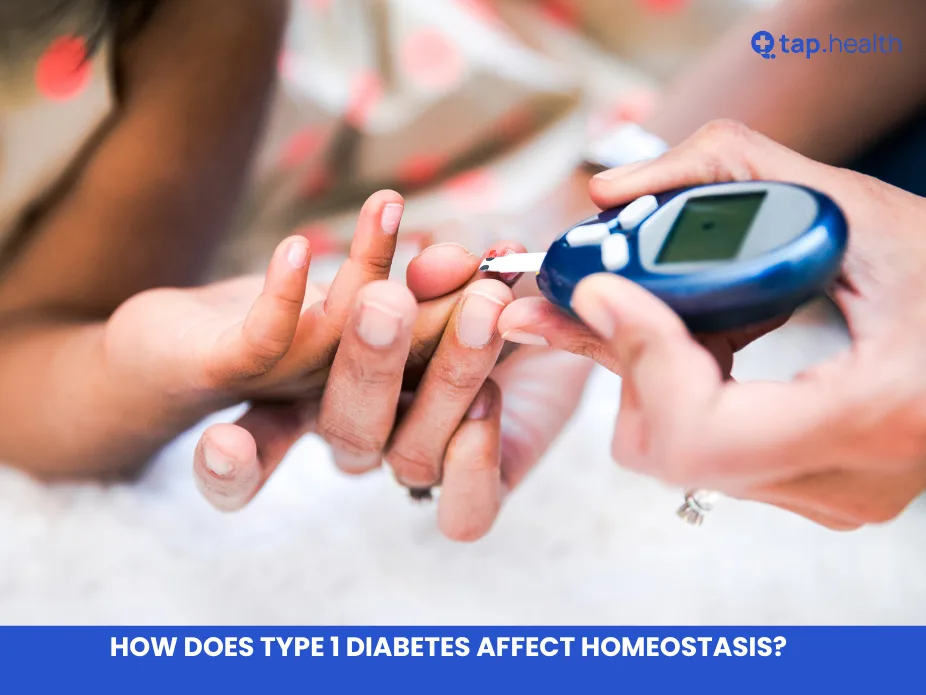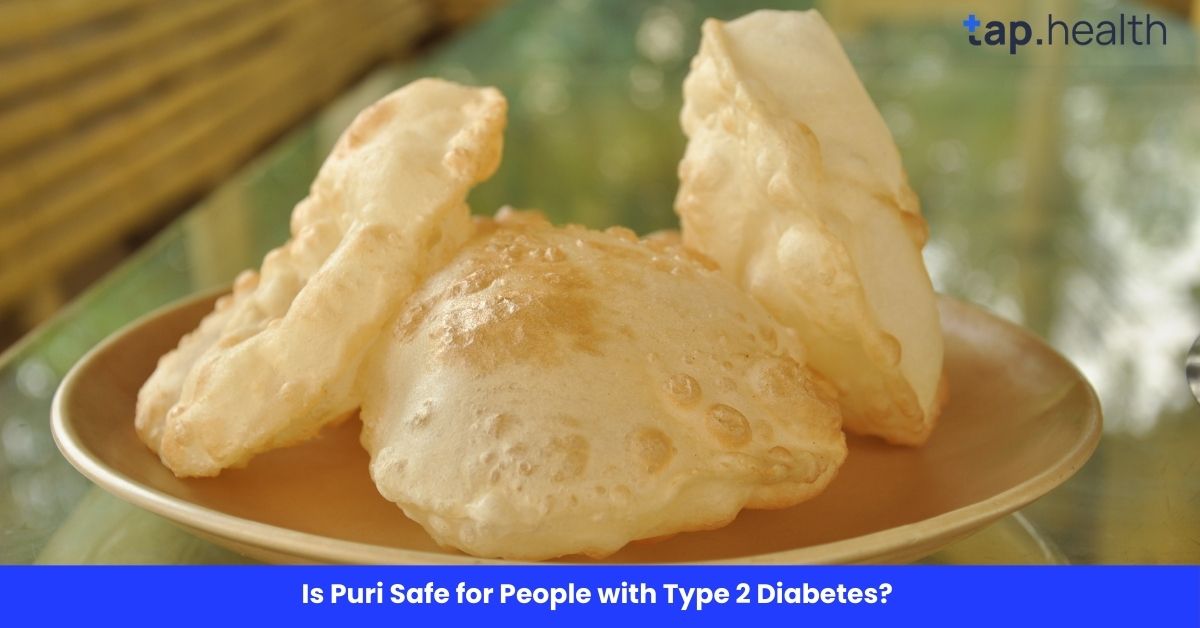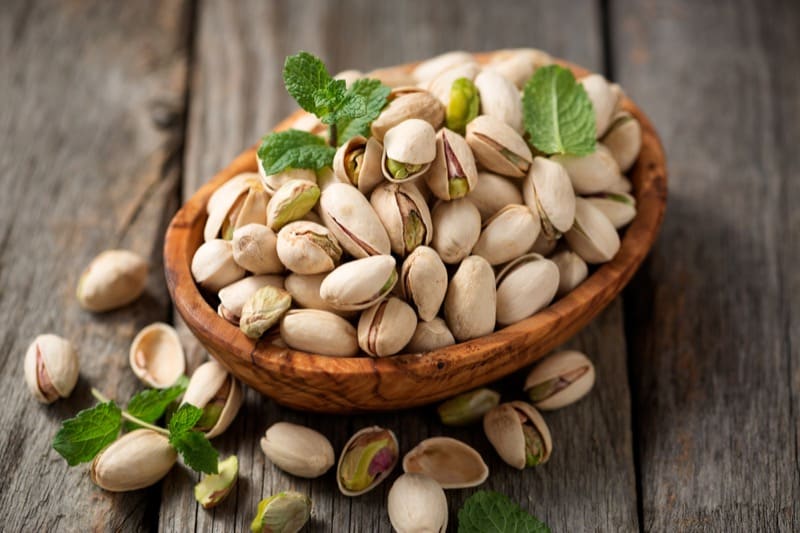TypHomeostasis is the body’s ability to maintain a stable internal environment, balancing various systems like temperature, pH, water levels, and glucose. This balance is crucial for the body to function efficiently. In healthy individuals, the body regulates these parameters automatically. However, in people with type 1 diabetes, homeostasis is disrupted due to the body’s inability to produce insulin, a hormone vital for regulating blood sugar levels.
In this blog post, we’ll explore how type 1 diabetes affects homeostasis and why it’s important to understand this relationship. We will look into the role of insulin, blood sugar regulation, and how the body tries to adapt to the changes caused by diabetes. Understanding the effects of type 1 diabetes on homeostasis can help manage the condition better and maintain overall health.
What is Homeostasis?
Before delving into how type 1 diabetes affects homeostasis, let’s first understand what homeostasis is. Homeostasis refers to the body’s ability to maintain stable internal conditions despite changes in external conditions. This includes regulating vital factors such as:
- Body Temperature: Maintaining a constant internal temperature (around 37°C) to ensure the body’s enzymes and processes work efficiently.
- Blood Sugar Levels: Regulating glucose levels in the blood to provide energy for the body’s cells.
- Fluid Balance: Keeping the right amount of water and electrolytes in the body to ensure proper cell function.
- Blood pH Levels: Maintaining the balance of acidity and alkalinity in the body to prevent disruptions in cellular activities.
In a healthy individual, the body uses various mechanisms to regulate these factors. For example, when blood sugar levels rise after eating, the body releases insulin to help bring those levels back to normal. Similarly, if blood sugar levels drop, the body releases glucagon to raise the levels.
What is Type 1 Diabetes?
Type 1 diabetes is an autoimmune condition where the body’s immune system mistakenly attacks and destroys the insulin-producing beta cells in the pancreas. As a result, people with type 1 diabetes are unable to produce insulin, a hormone that is crucial for regulating blood sugar levels.
Unlike type 2 diabetes, where the body becomes resistant to insulin, type 1 diabetes typically develops in childhood or adolescence and requires lifelong insulin therapy. Without insulin, blood sugar levels can become dangerously high, or in some cases, too low. This disruption in glucose regulation significantly impacts homeostasis.
How Does Type 1 Diabetes Affect Blood Sugar Homeostasis?
1. Loss of Insulin Production
Insulin plays a critical role in regulating blood sugar levels by helping glucose enter cells for energy production. In people with type 1 diabetes, the immune system attacks and destroys insulin-producing cells in the pancreas. As a result, insulin production is significantly reduced or completely absent.
Without sufficient insulin, the body cannot regulate blood glucose levels effectively. After eating, blood sugar levels can spike and remain elevated, leading to hyperglycemia. On the other hand, if insulin doses are too high or there is an imbalance, blood sugar can drop too low, leading to hypoglycemia. Both hyperglycemia and hypoglycemia disrupt normal homeostasis.
2. Impact on Glucose Regulation
In a healthy body, after you eat, glucose from food enters the bloodstream. The pancreas releases insulin to help cells absorb this glucose. However, in individuals with type 1 diabetes, the pancreas cannot produce enough insulin, leading to poor glucose regulation. This results in fluctuating blood sugar levels—high after meals (hyperglycemia) and low between meals or during physical activity (hypoglycemia).
The body tries to compensate for this imbalance in several ways. When blood sugar is too high, the kidneys work to filter out excess glucose, often leading to frequent urination. The body also starts breaking down fat for energy, which can lead to the production of ketones—a by-product of fat breakdown. High levels of ketones can lead to diabetic ketoacidosis, a potentially life-threatening condition.
The Role of Insulin in Homeostasis
1. Insulin’s Role in Maintaining Blood Sugar Levels
Insulin is essential for maintaining blood sugar homeostasis. When you eat, your body digests food and breaks it down into glucose, which enters the bloodstream. Insulin helps regulate this glucose by facilitating its transport into cells for energy production. This process ensures that blood sugar levels stay within a healthy range.
In individuals with type 1 diabetes, the absence of insulin means that the body cannot properly regulate glucose. As a result, blood sugar levels can rise significantly, leading to various complications such as nerve damage, kidney problems, and cardiovascular disease.
2. Insulin Therapy and Blood Sugar Control
To manage type 1 diabetes, individuals need to take insulin either through injections or an insulin pump. This therapy is designed to mimic the body’s natural insulin production. The goal is to keep blood sugar levels within a target range to avoid both hyperglycemia and hypoglycemia.
However, insulin therapy is not without its challenges. It requires careful monitoring of blood sugar levels, a balance between insulin doses, diet, and physical activity. Insulin therapy can help restore some level of blood sugar homeostasis, but it requires consistent management to avoid complications.
How Does Type 1 Diabetes Affect Fluid and Electrolyte Balance?
1. Increased Urination and Dehydration
When blood sugar levels are high, the kidneys work harder to filter out the excess glucose from the bloodstream. This leads to increased urination (polyuria), which can result in dehydration. Dehydration can disrupt the body’s fluid balance, causing symptoms such as dry mouth, weakness, and dizziness.
In severe cases, dehydration can lead to electrolyte imbalances, affecting the function of muscles and nerves. Electrolytes like sodium, potassium, and calcium play a crucial role in maintaining the body’s internal environment, and disruptions in their balance can have serious consequences.
2. Electrolyte Imbalance and Diabetic Ketoacidosis
When blood sugar levels are high for an extended period, the body starts breaking down fats for energy, producing ketones. These ketones, if accumulated in the body, can lead to diabetic ketoacidosis (DKA), a serious complication of type 1 diabetes. DKA causes a drop in blood pH levels, which can disrupt electrolyte balance. The body tries to compensate by shifting electrolytes in and out of cells, leading to further imbalances.
How Does Type 1 Diabetes Affect Other Homeostatic Mechanisms?
1. Thermoregulation (Body Temperature Control)
Maintaining body temperature within a narrow range is essential for the proper functioning of enzymes and metabolic processes. In people with type 1 diabetes, fluctuations in blood sugar levels can affect thermoregulation. High blood sugar levels can cause excessive urination and dehydration, which can affect the body’s ability to regulate temperature. Additionally, the body’s stress response to fluctuating blood sugar levels can also disrupt temperature regulation, leading to feelings of being hot or cold.
2. pH Balance and Diabetic Ketoacidosis (DKA)
As mentioned earlier, DKA occurs when the body starts producing high levels of ketones due to a lack of insulin. These ketones can make the blood more acidic, disrupting the body’s normal pH balance. The body has mechanisms to compensate for this acidity, but if left untreated, DKA can lead to severe acidosis, which affects various organ systems, including the brain and heart.
3. Immune System Function
Type 1 diabetes itself is an autoimmune condition where the body’s immune system attacks its own insulin-producing cells. This compromise in immune function can make individuals with type 1 diabetes more susceptible to infections. A weakened immune system can also affect other homeostatic processes, such as wound healing and inflammation control.
How to Manage Homeostasis in Type 1 Diabetes
Maintaining homeostasis in the presence of type 1 diabetes requires careful management of blood sugar levels, hydration, and overall health. Here are a few key strategies:
1. Regular Monitoring of Blood Sugar Levels
Frequent blood glucose monitoring is essential for managing type 1 diabetes. Regular monitoring helps individuals adjust their insulin doses, plan meals, and anticipate the effects of physical activity on blood sugar levels. This proactive approach helps maintain blood sugar levels within a healthy range, minimizing the risk of both hyperglycemia and hypoglycemia.
2. Insulin Therapy and Proper Dosing
Taking the right amount of insulin at the right times is crucial to restoring and maintaining blood sugar homeostasis. This requires a tailored approach, often with the help of an endocrinologist or diabetes educator, who can guide insulin management based on diet, exercise, and lifestyle.
3. Hydration and Electrolyte Management
Staying hydrated is important for preventing dehydration, especially when blood sugar levels are high. Drinking enough water and consuming electrolyte-rich foods or drinks can help maintain fluid balance and prevent complications such as dehydration and electrolyte imbalances.
4. Healthy Diet and Exercise
A balanced diet that includes healthy carbohydrates, lean proteins, and healthy fats can help regulate blood sugar levels. Regular physical activity also helps improve insulin sensitivity, making it easier to manage blood sugar levels. A well-rounded approach to diet and exercise supports overall homeostasis.
Real-Life Scenario
Consider a 16-year-old student diagnosed with Type 1 diabetes. After forgetting to take insulin before breakfast, they feel weak, thirsty, and light-headed at school. Their blood sugar reading shows 320 mg/dL. This spike in glucose disrupts the body’s homeostasis, forcing the kidneys to excrete excess sugar through urine—leading to dehydration and fatigue. After taking insulin and rehydrating, their glucose levels stabilize, restoring balance to the body.
Expert Contribution
Endocrinologists explain that insulin acts as a key regulator in the homeostatic system controlling glucose metabolism. When insulin is absent, the feedback loop that maintains blood sugar fails. Experts emphasize that consistent blood glucose monitoring, insulin therapy, and dietary management are essential for maintaining internal stability.
Research from the American Diabetes Association (ADA) also highlights that maintaining glucose within a target range reduces the risk of complications like neuropathy, nephropathy, and retinopathy, all of which stem from disrupted homeostasis.
Recommendations Grounded in Proven Research and Facts
- Monitor blood glucose regularly to detect imbalances early.
- Follow a balanced diet with controlled carbohydrate intake to maintain energy stability.
- Administer insulin consistently as prescribed to restore homeostatic control.
- Stay hydrated to counter fluid loss from excess urination.
- Engage in moderate exercise, which enhances insulin sensitivity and helps stabilize glucose levels.
- Understand body cues such as fatigue, excessive thirst, or frequent urination—signs that homeostasis is disrupted.
Frequently Asked Questions (FAQs) on How Does Type 1 Diabetes Affect Homeostasis?
Q1: How does type 1 diabetes disrupt homeostasis?
Type 1 diabetes disrupts homeostasis by affecting blood sugar regulation, fluid balance, and electrolyte levels. Insulin deficiency leads to fluctuating blood sugar levels, dehydration, and the potential for diabetic ketoacidosis, all of which impact homeostatic balance.
Q2: What is the role of insulin in homeostasis?
Insulin helps regulate blood sugar by allowing glucose to enter cells for energy. It is crucial in maintaining blood sugar levels within a healthy range, ensuring stable internal conditions in the body.
Q3: How does dehydration affect people with type 1 diabetes?
Dehydration in type 1 diabetes often results from high blood sugar levels, which cause excessive urination. Dehydration can lead to electrolyte imbalances, further disrupting homeostasis and causing symptoms like dizziness, weakness, and confusion.
Q4: What are the long-term effects of type 1 diabetes on homeostasis?
Long-term type 1 diabetes can lead to complications such as cardiovascular disease, kidney damage, nerve damage, and eye problems. These complications arise from chronic disruptions in blood sugar regulation and homeostasis, which can affect various bodily systems over time.
Q5: How can type 1 diabetes be managed to maintain homeostasis?
Type 1 diabetes can be managed through regular blood glucose monitoring, insulin therapy, proper hydration, a healthy diet, and regular exercise. These measures help maintain homeostasis by keeping blood sugar levels stable and supporting overall bodily functions.
Conclusion
Type 1 diabetes significantly impacts homeostasis by disrupting blood sugar regulation, fluid balance, and other bodily processes. Without proper insulin production, individuals with type 1 diabetes struggle to maintain the internal balance necessary for good health. However, with careful management—including insulin therapy, diet, exercise, and hydration—it’s possible to restore and maintain homeostasis, reducing the risk of complications and improving overall well-being. Understanding how type 1 diabetes affects homeostasis is essential for managing the condition and maintaining a healthy lifestyle.



